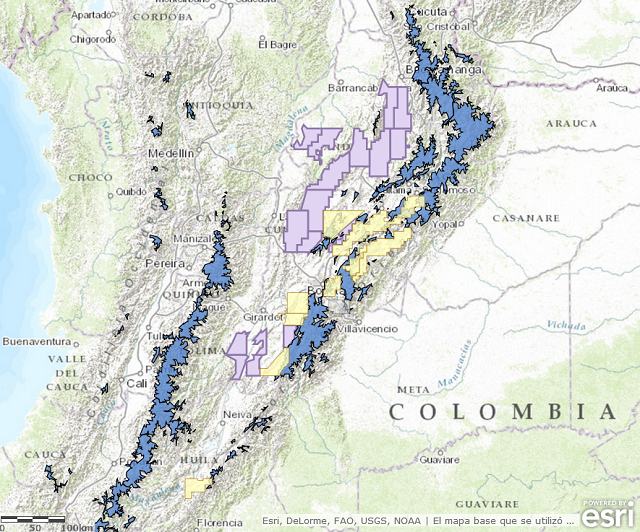GasThe International Finance Corporation (IFC), part of the World Bank, is leading the financing of US$240M in debt for a floating liquid natural gas plant (LNG) in the Caribbean being built by Pacific Rubiales Energy (NYSE:PRE), the first of its kind in the world.

The National Hydrocarbons Agency (ANH) will exclude parámos, or high-mountain tundra- from blocks being offered in the upcoming Colombia Round 2014.
While acknowledging that there are long delays in the implementation of royalty projects, which do not always go to the greatest needs, the new system has ended the “super scandals” associated with royalty abuse and corruption.
Ecopetrol (NYSE:EC) and four unions that fill its ranks have started the process to reach a new collective bargaining agreement. The last one was in place from 2009-2014 and Ecopetrol is optimistic that an agreement can be reached during direct talks.
Sometimes goals are set that would be nice to attain, but some are not realistic considering the situation on the ground, said the Minister of Mines and Energy Amylkar Acosta when doing a balance of his management of the hydrocarbons sector 10 months after taking the helm.
In Meta a tribunal laments the lack of action or interest on road issues from the national government while logistics firm Impala has taken a new, more aggressive strategy to ensuring that transportation contractors comply with routes and regulations. These and other stories involving Colombia’s contested roadways.